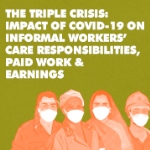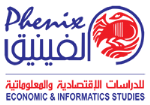| |
|
| |
|
| |
G20 TALKS
South Africa must raise Africa’s voice for a social protection Global Fund |
| |
|
| |
OP-ED - By Markus Kaltenborn and Letlhokwa George Mpedi
The proposal to set up a Global Fund for Social Protection could be the subject of this year’s discussions at the G20. South Africa is the only African country in the G20, so the South African government should seize the opportunity to support the establishment of a Global Fund that will enable the economically weaker countries of the continent to pursue ambitious goals concerning the social protection coverage of their population. Read more
|
| |
|
| |
|
| |
New Social Contract: ITUC report makes economic case for social protection |
| |
|
| |
 |
On the 1 May, workers across the world will be celebrating the achievements of nearly 200 years of trade union activity and putting forward their demands for decent work and sustainable development.
A new report for the International Trade Union Confederation (ITUC) shows that there is a strong economic, as well as moral and public health, case for governments to introduce universal social protection.
“Investments in social protection and their impacts on economic growth” shows that there is a healthy return on investing in social protection.
By applying a robust assessment of the impact of investing the equivalent of just 1% of GDP in each of eight countries, the research shows that positive returns on the economy overall, stimulating growth; increased productivity and overall employment; increased tax revenues; more effective poverty alleviation; and reduced barriers to women entering or returning to work.
In addition, the report shows that increased investments in social protection can yield between 0.7 and 1.9 times their value in economic returns. This means that the economic benefits of social spending increases can partially or completely offset the costs. Read more |
| |
|
| |
|
| |
The Triple Crisis: Impact of COVID-19 on Informal Workers’ Care Responsibilities, Paid Work and Earnings |
| |
|
| |
 |
The COVID-19 pandemic can be understood as a triple crisis. The publication by WIEGO (Ana Carolina Ogando, Michael Rogan and Rachel Moussié) shows that at its origin it is a public health crisis and government responses to contain the virus through lockdowns, border closures and social distancing have led to an inevitable economic crisis. Along with closing creches and schools, these measures contributed to a care crisis.
Key findings:
1. Women informal workers who report an increase in their care responsibilities—including cooking, cleaning, child care and care for the ill and older persons—are working fewer days and earning less than other informal workers.
2. Men who report an increase in their care responsibilities work fewer days, but do not see a significant drop in earnings as compared to other men working in the informal economy.
3. Both women and men who report an increase in their care responsibilities have resorted to asset-depleting strategies that deepen intergenerational poverty. For women informal workers, this undermines their capabilities in the long term. Read more
|
| |
|
| |
|
| |
The Jordanian Labor Watch Recommends Ways to Strengthen Women role in Economic Life |
| |
|
| |
 |
Jordan Labor Watch (JLW) has recommended reviewing various strategies and programs aimed at strengthening the women role in the Kingdom’s economic life and the labor market, whether issued by the relevant government, or civil society institutions, targeting women protection in the labor market.
The JLW of the Phenix Center for Economics & Informatics Studies said in a position paper that women have paid a “greater” price in comparison to men in the labor market due to the Covid-19 pandemic as the unemployment rate among them increased by 6.1%, compared to 4.1% among men.
Unemployment rates among women reached 33.6% during the third quarter of 2020, compared to 21.2% among males, warning this situation would lead to their poverty more than men, and thus the spread of the phenomenon of “feminization of poverty,” per the study.
The paper showed that Jordan ranks 140 out of 142 countries on the global indicator of women’s economic participation, and the high unemployment rates for women in Jordan are associated with a very low economic engagement rate of 14.9%. Read more
|
| |
|
| |
|
| |
Publication: “Digital Refugee Livelihoods and Decent Work - Towards inclusion in a fairer digital economy” |
| |
|
| |
The digitization of the world of work is fundamentally transforming how refugees can make a livelihood and obtain employment. A rapidly expanding global digital economy harbours countless new opportunities but it also poses a range of challenges and risks. A new report by the International Labour Organization (ILO) now explores the growing role of digital economies for refugees, including case studies from Asia, Africa, the Middle East, and Europe.
Efforts to integrate refugees into the online gig economy should be accompanied by a wider effort to improve conditions within this new form of work, so as not to exacerbate their existing marginalisation and economic precarity. Due to major challenges and risks, low payment levels, and insecurity, the gig
economy can only be viewed as one element in a wider range of options, as a complementary form of livelihood provision rather than a stand-alone solution. Read more
|
| |
|
| |
|
| |
|
| |
WELCOME TO NEW MEMBER |
| |
|
| |
Youth Mentoring Agents for Development Organization - YOMADO |
|
|
| |
 |
The Youth Mentoring Agents for Development Organisation (YOMADO) is a non- government, non-profit organization that works at the grass roots level. It is a volunteer membership organization for young people. It was established in Rwanda in 2014, following the participation of (Young) founding members in a World Vision Rwanda Leadership and Governance program as beneficiaries. YOMADO was legally recognized by the Rwandan Government in 2015.
YOMADO is a youth development Organisation in Rwanda that provides services and leadership to meet the emerging needs of young people and their families in our community.
YOMADO provides an array of academic, social, and emotional development services that respond to the unmet needs of the young people we serve. Those services include academic assistance, life skills education, social skill development, recreational and athletic activities, cultural and artistic activities, parental support, crisis intervention, mentoring, case management, and individual, group, and family counseling.
Contact information: Emmanuel Nshimiyimana (emmyfanfare@yahoo.com)
https://yomado.org/ / Facebook: yomado
|
| |
|
| |
|
